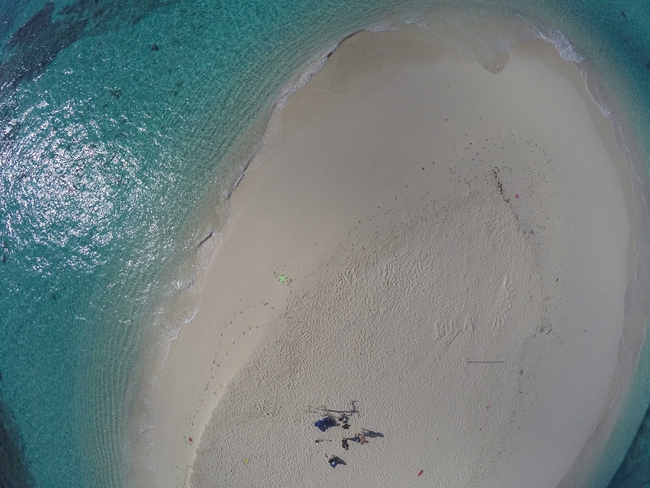30/05/2024 | Geospatial data are vital for solving Earth’s biggest challenges. Consumer-grade drones are time-saving fine-scale data collection tools with enormous potential for addressing ecological, societal, and environmental research problems. This is highly relevant on tropical coasts, many of which are often data-poor, yet particularly vulnerable to anthropogenic pressures. This summer (26 - 28 June 2024), the Leibniz Centre for Tropical Marine Research (ZMT) will host an international workshop on the challenges and opportunities of using consumer-grade drones for coastal and marine tropical research. Led by Sonia Bejarano (ZMT) and Alessio Rovere at (Ca’Foscari University of Venice), the workshop will connect four pogo members: The ZMT, Euro-Mediterranean Centre on Climate Change (CMCC), the Institut de Recherche pour le Development (IRD), and the Institute for Marine and Costal Research in Colombia (INVEMAR). The workshop will welcome 25 speakers representing nine countries including Germany, Italy, Colombia, La Reunion, Ghana, Australia, Norway, Sweden, and the Maldives and will take place in the beautiful city of Bremen, Germany.
On the first day (26 June), participants will share the challenges and findings met using consumer-grade drones, 3D photogrammetry, and machine learning to investigate past and modern coastal processes on rocky and sandy shores, shallow coral reefs, and mangrove forests. In the morning of the second day (27 June), representatives of the drone manufacturing industry and experienced drone pilots and trainers will share with scientists an overview on the state-of-the-art in consumer-grade (airborne and underwater) drones’ development.
The Microwaves and Radar Institute at the German Aerospace Centre in collaboration with OptoPrecision will then fast-track us in to the future of multi-sensor based remote sensing. Innovative platforms for flexible on-demand drone-data collection as well as geospatial collaboration platforms aimed at making drone mapping and geospatial collaboration as easy as it is to buy consumer-grade drones, will be introduced by their creators.
The afternoon of the 27 June will round-up these scientific and technical overviews with a perspective on the legal and insurance aspects scientists should consider when flying drones on the world’s coastlines adhering to EU and local legislation. During these two days and on the 28 June we will also work intensively on a concrete output of this workshop: a scientific manuscript describing the state-of-the-art regarding the use of drones for environmental research across the globe. This manuscript, and the collaborations formed during the workshop, will serve as a basis for co-developing a joint UNDOS project proposal.
By bringing together experts in marine and coastal drone-based research, aviation authorities and drone developers, this workshop will develop new transnational and transcontinental scientific collaborations for solution-oriented drone research. This holds the key to realise the full potential of scientific drone use. The workshop, perspective and future UNDOS project will strengthen international (especially North-South) scientific cooperation, contributing to collective knowledge production and capacity development in ocean observation.
This workshop and the future project will advance all three pillars of POGO’s mission - innovation in ocean observing, capacity development, as well as outreach and advocacy. It will also contribute directly to several UNDOS challenges such as protecting and restoring ecosystems and biodiversity, unlocking ocean-based solutions to climate change, increasing community resilience to ocean hazards, and expanding the Global Ocean Observing System.
You are welcome to register to attend this workshop sending an email to:
WORKSHOP AGENDA: Please find the programm here.





